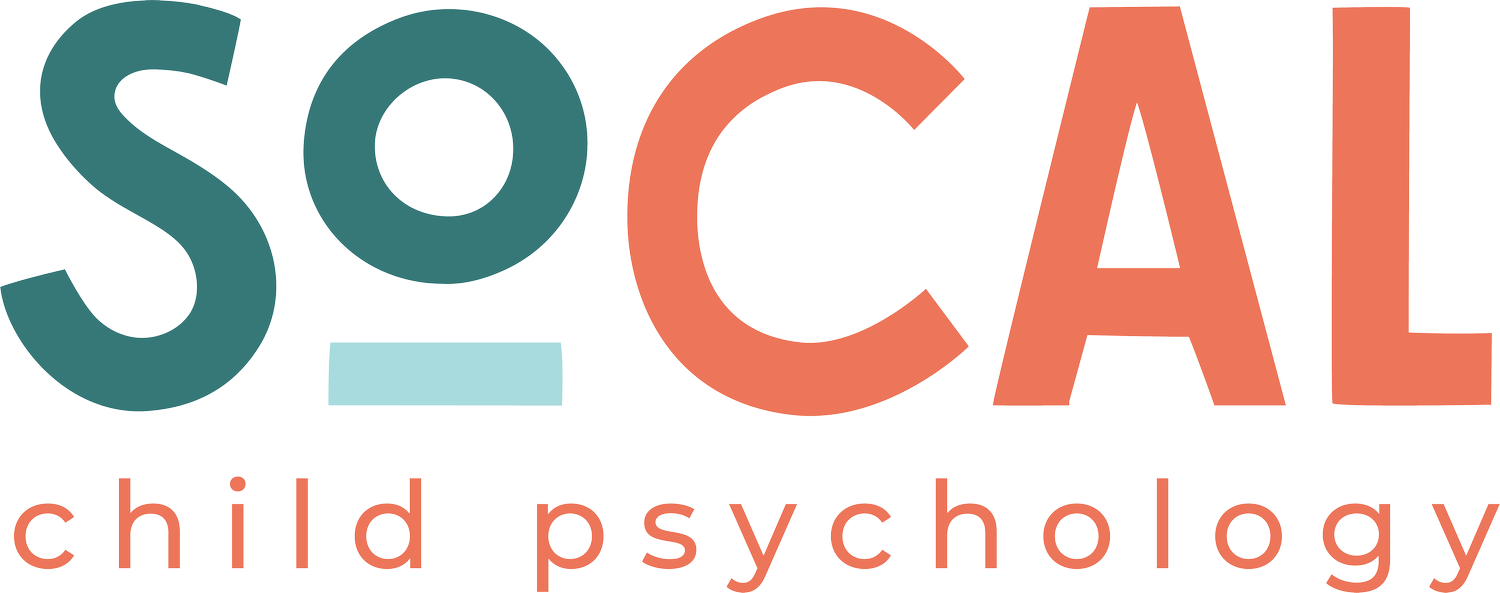My Child Was Just Diagnosed with ADHD in San Diego
Finding out that your child has been diagnosed with Attention-Deficit/Hyperactivity Disorder (ADHD) can bring up a mix of emotions.
Relief that you finally have answers. Worry about what comes next. Questions about how to best support your child at home, in school, and socially.
If you’re a parent in San Diego or La Jolla navigating a new ADHD diagnosis, know that you are not alone.
Many families face this same journey, and the good news is that there are excellent local resources from therapy to tutoring to school accommodations that can help your child thrive.
This guide will walk you through the next steps after a diagnosis and provide recommendations for supportive resources right here in San Diego.
Understanding What an ADHD Diagnosis Means
An ADHD diagnosis can give you clarity on how their brain processes the world. Children with ADHD may struggle with focus, organization, impulsivity, and regulation, but they also often show creativity, energy, and problem-solving skills that stand out.
Receiving an ADHD diagnosis means you now have insight into your child’s unique strengths and challenges. With the right support, kids with ADHD can learn strategies to manage symptoms, build confidence, and succeed in school and life.
Connect with a Child Therapist in San Diego
Therapy is one of the most effective ways to help your child build tools for managing ADHD symptoms. Cognitive Behavioral Therapy (CBT), parent-focused therapy, and skills-based interventions are often recommended.
At SoCal Child Psychology in La Jolla, our team specializes in working with children, teens, and families facing ADHD. We help kids learn concrete skills for focus and self-control, while also coaching parents in strategies that make home life calmer.
Explore School-Based Support and Accommodations
Children with ADHD often qualify for school accommodations under a 504 Plan or Individualized Education Program (IEP). These supports can make a huge difference in your child’s ability to focus and feel successful in class.
Common accommodations include:
Extra time on tests and assignments
Preferential seating near the teacher
Movement breaks during class
Simplified or chunked assignments
Use of organizational tools (planners, checklists, timers)
It’s recommended that you bring your child’s ADHD evaluation report to these meetings as it can help the school understand your child’s needs more clearly.
Consider Parent Coaching and Support
Parenting a child with ADHD comes with unique challenges. From homework battles to emotional meltdowns, it can feel overwhelming. Parent coaching can give you tools to set boundaries, reduce conflict, and support your child’s independence.
Locally, SoCal Child Psychology offers parent-focused therapy for ADHD and support. Parent-focused therapy for ADHD is most effective if your child struggles with strong emotions and following through on tasks such as homework, chores, and getting ready in the morning or evening.
In addition, organizations such as CHADD offer workshops, support groups, and educational resources for parents.
Look Into Tutoring and Academic Support
Because ADHD can impact executive functioning and skills like planning, organization, and follow-through, many children benefit from tutoring or academic coaching.
In San Diego, some private schools offer support for executive functioning and learning.
Families can also turn to supports such as Fusion Academy for personalized one-on-one instruction tailored to kids with ADHD and learning differences.
Tutoring can not only improve grades but it can also help kids become more independent and confident in completing their schoolwork.
Explore Medication Options
Medication is an effective treatment for ADHD. If you’re considering medication, talk with your child’s pediatrician or a child psychiatrist. When combined with therapy and school support, medication can help many children regulate their impulses, emotions, and behavior more successfully.
Build a Supportive Home Environment
Beyond therapy and school, parents can make small changes at home that help kids with ADHD thrive. By working with a therapist that specializes in ADHD, you can also get support in implementing these strategies at home.
Some strategies that can be helpful for families include:
Creating structured routines with clear expectations
Using visual schedules, clocks, and reminders
Providing positive feedback for effort
Breaking tasks into smaller, manageable steps
Prioritizing sleep and healthy nutrition
Encouraging physical activity, which helps regulate mood and focus
Parents often find that when they shift routines at home, it reduces stress for the whole family.
Connect With Local ADHD Resources and Communities
Finding a community of other parents who understand ADHD can make a huge difference. In San Diego, you can look into:
CHADD San Diego - support groups and parent education
Local Facebook groups and parent meetups
Take Care of Yourself as a Parent
Supporting a child with ADHD can be rewarding but also draining. Remember that your well-being matters, too. Whether it’s attending a parent support group, seeing your own therapist, or simply setting aside time for rest, taking care of yourself ensures you can show up with patience and calm for your child.
Supporting Your Child With ADHD in San Diego
At SoCal Child Psychology, we specialize in helping children and teens with ADHD and related challenges. Families across San Diego trust us for:
ADHD therapy for kids and teens
Parent-focused support and coaching
Collaboration with schools to ensure your child’s needs are met
If you’re looking for a child psychologist in San Diego or La Jolla who understands ADHD inside and out, our team is here to help.
An ADHD diagnosis can feel overwhelming at first, but it’s also an opportunity to better understand your child and set them up for success. With the right combination of therapy, school support, tutoring, and parent guidance, kids with ADHD can thrive.
Ready to take the next step? Contact SoCal Child Psychology in La Jolla today to schedule an appointment and learn how we can support your family.

